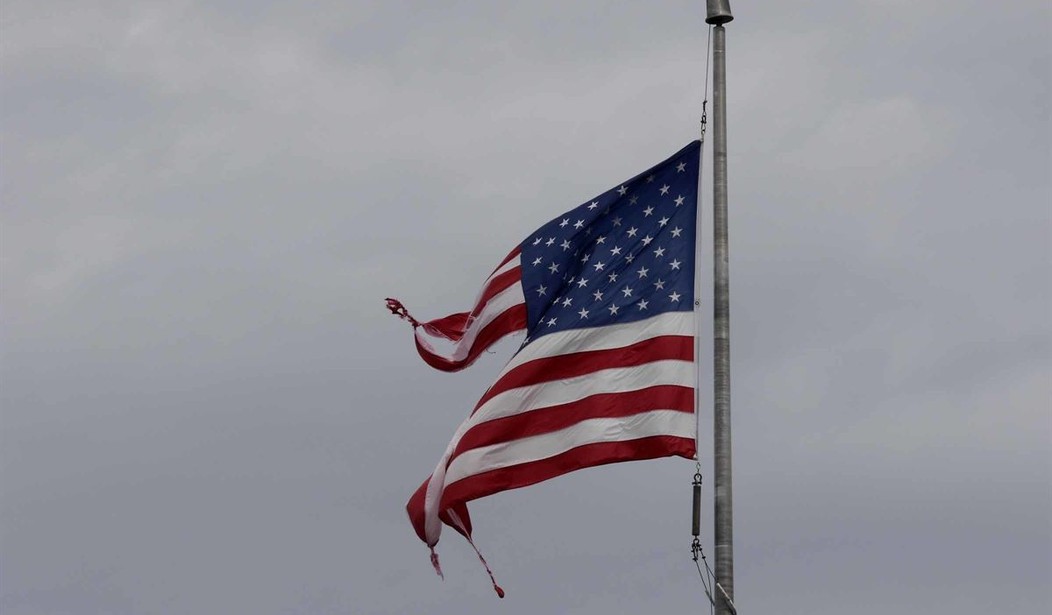Two recent polls ought to unsettle us profoundly, because of the extremely dark picture they paint of our country's short-term future.
The first poll was published by the National Association of Business Economists, and it asks its members whether they think the U.S. is currently in a recession. Only 19% agree that it is. However, more than half believe that a recession is coming in the next year. This represents a very high degree of professional pessimism when it comes to the U.S. economy. Simply put, economists expect that efforts to bring down inflation, primarily by raising interest rates, will torpedo economic growth.
Perhaps these economists are merely taking their cue from history. The last time the Fed made inflation busting its top priority, the U.S. endured one of the worst recessions in the post-World War II era. The 1981-82 recession saw unemployment peak at almost 11 percent, while the average 30-year mortgage rate hit a high of 16.63 percent.
Modern economists don't seem to expect anything nearly as apocalyptic this year or next, but they do forecast considerable deterioration in our economic fundamentals.
The other poll we should ponder carefully comes courtesy of Gallup, which asked Americans a standard series of questions designed to reveal their emotional/psychological state. Gallup then classifies us based on our responses as “thriving”, “struggling”, or “suffering.” Right now, in August 2022, a record high percentage of Americans report that they are “suffering.” The number who are “thriving” has been declining steadily. Likewise, the number of Americans asserting that the country is on the “wrong track” has been surging – to 74% in a recent NBC poll.
Let's unpack these insights.
First, it bears mentioning that Americans' pessimism, anxiety, and cynicism are already at such unprecedented levels that we see a steady stream of articles, interviews, and political speeches that assert that the very survival of our constitutional order and of our democratic system is in jeopardy. (Whether these articles, interviews, and speeches are more of a reflection or a cause of such negativity is an open question). Meanwhile, fertility rates are flagging, and depression rates are skyrocketing, in response to a host of setbacks, challenges, and threats – from COVID to climate change, from “wokeness” to “fascism” – that seem to imperil our way of life and our values.
Recommended
Whether these feelings of despondency are rational responses to genuine adversity, or are cultivated, and therefore artificial, overreactions to insidious propaganda, their impact on the American psyche is impossible to deny. And anxiety, wherever it comes from, can have profound effects on history. As the saying goes, “desperate times call for desperate measures,” and, time and again, desperate people make rash, and often deeply unwise, choices.
To cite an obvious example, only 3 percent of Germans voted for the Nazis in 1928, when the German economy was reasonably strong. By mid-1932, when the Great Depression was at its height, 37 percent voted Nazi, and a majority supported the extremes of either fascism or communism. They were literally desperate for answers, regardless of the source.
The important thing to ask ourselves, therefore, is this: as bad as Americans are feeling about the state of the nation now, how much worse could the public mood get if a recession hits late this year or sometime in 2023? And what if, contrary to the expectations of economists, that recession isn't mild, but instead becomes severe? Will we even have the option of rescuing ourselves, via the printing and borrowing of yet more money, from the resulting privation and misery, or will we have no choice but to writhe in agony as powerful economic forces overwhelm us? And, if we are overwhelmed on the economic front, might some of our political institutions buckle as well?
Based on the two polls cited, we face a near-term future in which a nation already teetering emotionally, psychologically, and in terms of its civic identity and unity, will be pushed, at least potentially, over the edge, plunging headlong into new dimensions of self-loathing, uncertainty, and trepidation. Few Americans now alive have experienced anything of the kind.
Under these circumstances, we can't help but wonder whether all the handwringing about the “survival of the Republic” might actually be justified.

























Join the conversation as a VIP Member